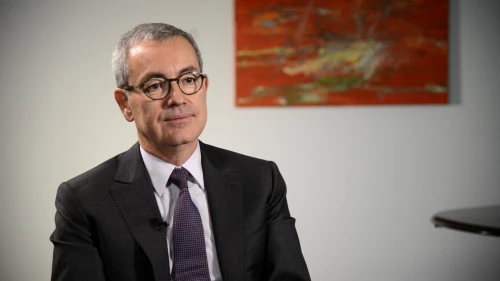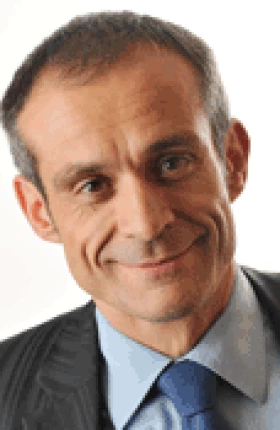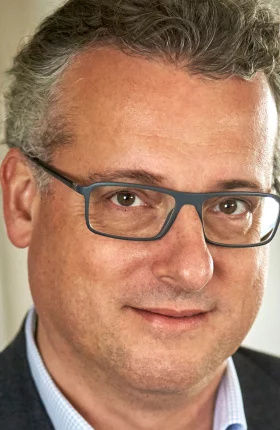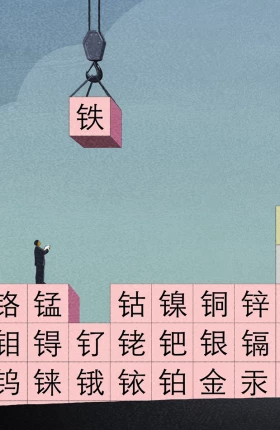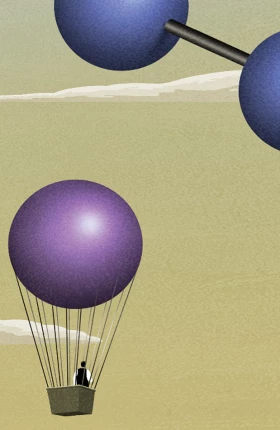Headquartered in Brussels, Solvay is a global chemical company with 26,000 employees in 52 countries and 2014 revenues of €10.2 billion. The career of CEO Jean-Pierre Clamadieu has gone through a number of distinct phases. He took the helm of the Rhodia Group in 2003, when the company was in a crisis and he had to stabilize it to avoid bankruptcy. Then came a period of driving Rhodia’s growth, followed by the company’s merger with Solvay in 2011. He became CEO of Solvay in 2012. With Solvay’s 2015 acquisition of Cytec, Clamadieu is now in the position of integrating two very different cultures. At the same time, he’s leading an organizational transformation aimed at better positioning the company for the realities of today’s rapidly changing chemical industry.
Clamadieu recently sat down with Andreas Gocke, a BCG senior partner and the firm’s global leader for process industries. Edited excerpts from that conversation follow.
In your many years of leadership, what major changes have you seen in the chemical industry?
In the past 12 to 15 years, I’ve seen the pace of change increase dramatically. The world seems to be changing every year. One issue is the top priority one day, and a few months later it’s another one. Because of this it’s important for the management team to have a clear vision but also the ability to adapt to these short-term challenges.
We’ve seen giants cut into pieces, we’ve seen companies refocusing their portfolios, chemical versus life sciences. Within chemicals, we’ve seen people trying to focus on a more limited number of businesses. We’ve seen specialized companies dealing, for example, with silicon, with consumer chemicals, and a few others, which have developed and taken a significant position in the smaller but interesting markets. We’ve seen players coming from emerging markets—and, frankly speaking, probably not becoming real global players as quickly as expected. We see this industry continuing to restructure and transform itself.
A key strategic input of the past few years is all the energy scenarios that we see developing in various countries. Ten or twelve years ago no one would have expected the US to become the absolute low-cost producer in terms of access to energy and feedstock. I think my US colleagues 12 years ago were much more focused on developing a position in the Gulf region. Now the US has become an incredibly attractive region for the chemical industry. This is an industry which is changing very much. Probably part of what I like about being the CEO of a chemical company is the fact that every day we see new challenges, and at the same time we need to deliver a medium- to long-term vision. This is something which clearly creates a lot of opportunities for people operating in this environment.
Now you have the Cytec acquisition. During this integration, how do you plan to preserve and build on your culture of performance?
I think Cytec will bring some specific features in terms of culture, but we also need to integrate, so it’s not just preserving the Solvay culture, it’s making sure that we take advantage of this integration to improve our culture of performance. For example, when it comes to customer relationships, Solvay has some very strong achievements in some very specific situations. There are a few companies where we’ve made a big difference in terms of how we develop relationships with them. We can share midterm objectives or we can rely on our resources when it comes to innovation.
I think a lot of our relationships are still very transactional and quite short term. Cytec brings us a very specific portfolio of customers, mostly in aerospace where you’re working very long term. In aerospace, usually you’ve started working on a project ten years before, and you know that what you’re announcing will have an impact in the next 20 to 30 years. It’s a very different type of relationship, where key strategic alignment with the customer is very important. This is clearly something that we want to bring into our culture. Also, Cytec is a smaller organization and very much focused on a portfolio that is made up of two different technologies and probably no more than three or four key markets.
These guys are very pragmatic—an approach that in some cases we want to bring into our own organization. Yes, we want to keep Solvay’s culture of performance and what we call excellence initiatives, which are a number of improvement action plans that we have launched across the board. At the same time, we want to make sure that we take advantage of this integration to go one step forward.
The Rhodia and Cytec acquisitions are part of a deep transformation. What words of advice would you give to other corporate leaders facing change agendas, and what leadership qualities support success?
Just to be clear, the Solvay transformation started before the acquisitions. The transformation started when Solvay—which was one of the last hybrid companies, with one foot in chemicals and one foot in pharma—decided to sell its pharma business and reinvest in chemicals. Rhodia and Cytec are part of this transformation, which is ongoing. I’ll be cautious in giving advice. The only thing I can do is to share my own experience and what I think were key features or key qualities when it comes to leadership.
Clarity of vision is very important—probably even more in an industry which is intrinsically complex, like chemicals. You need to be clear on where you want to drive the company. It’s a very uncertain environment, and we see things probably moving faster than we’ve ever seen. It’s important to have a clear vision of the project, especially for the CEO. You’re the one who’s there to try to make sure that the decisions, big ones and small ones, are aligned and help build this vision. Alignment with your board is also important. If you’re facing challenging issues and a high-impact transformation, you need to make sure that you have good discussions with your board, so it’s ready to move forward when opportunities arise.
Communication with the teams is also very important. We are a large organization, very spread out in terms of geographies, businesses, and competencies. You need to explain to your people where we’re going, maybe in less detail than with your board, but enough so that they understand how the small pieces of the decision could affect their everyday life and how the larger, more strategic pieces fit into the whole picture. Your teams also need to understand how progress is being made towards this vision.
Looking forward, what does the future hold for Solvay and for the rest of the industry?
The chemical industry is an industry in transformation. There is a lot of differentiation, a lot of different approaches, technologies, and business models within this industry. For Solvay, the vision is relatively simple. We want to become a high-margin, highly differentiated company offering very specific solutions to our customers, which tend more and more to be blue-chip, technology-oriented companies. We want to focus on markets that are fast growing. We want to increase the return to our shareholders, with a specific focus on the amount of capital that we put into each of our businesses.
We are a company for which sustainability is very important. Sustainability for Solvay is important in two ways. First is the impact of our activity on the environment. For a global chemical company, this is part of the license to operate, and we are putting in place a number of processes to make sure that we monitor, control, and reduce our impact on the environment. Sustainability also means strategic opportunities. When I look at the technologies that we’ve developed and what we have in our labs, there’s a very strong alignment between where we’re putting our innovation resources today and what people would call the willingness to develop a more sustainable economy.
As an example, probably one of the most important megatrends we’re working on today is what we call light weighting, the ability to develop materials that allow you to make lighter cars that consume less gasoline and have reduced CO2 emissions. The same concept applies to airplanes. The acquisition of Cytec is based on our belief that composites still offer a lot of opportunities in the aerospace industry because of our ability to design, develop, and produce more effective planes that consume less fuel and emit less CO2. This megatrend of light weighting is something in which Solvay is becoming a real champion.
About Jean-Pierre Clamadieu
Education
Degree in engineering from École Nationale Supérieure des Mines de Paris
Career Highlights
2012–present, Chairman of the Executive Committee and CEO, Solvay
2003–2011, CEO, Rhodia Group
1993–2003, various positions within Rhodia and its parent company, Rhône-Poulenc, including president of Rhodia Chemicals Latin America, president of Rhodia Eco Services, senior vice president of corporate purchasing, and president of the pharmaceuticals and agrochemicals division
Outside Activities
President, the European Chemical Industry Council (Cefic)
Board member, the International Council of Chemical Associations (ICCA)
Executive committee member, World Business Council for Sustainable Development (WBCSD)
Board member, Faurecia
Board member, Axa
